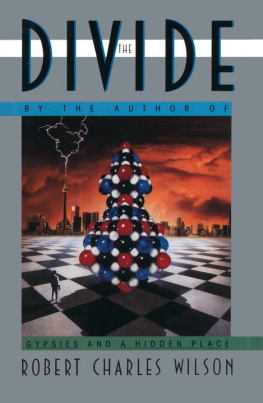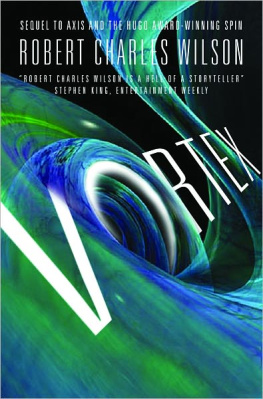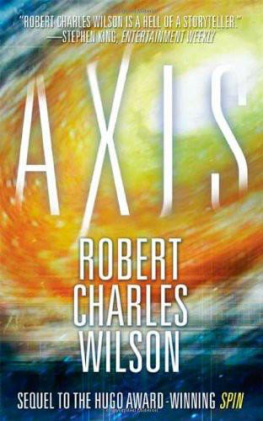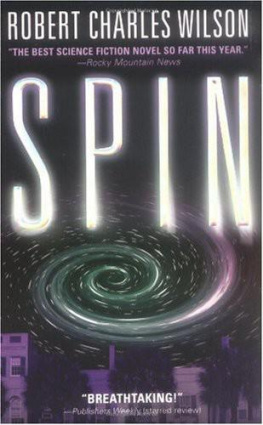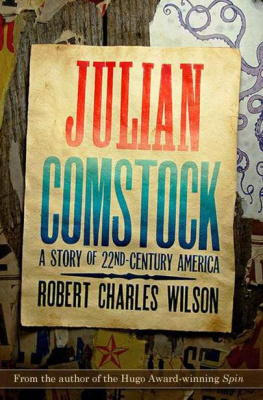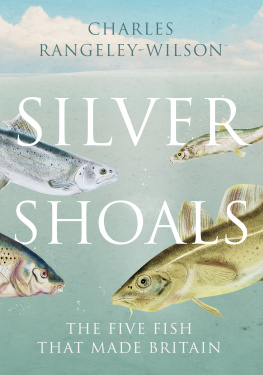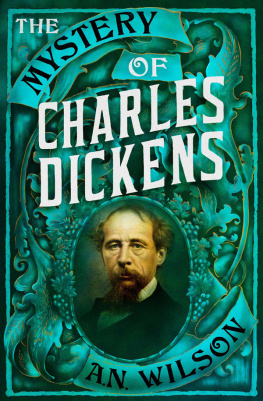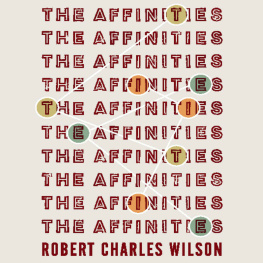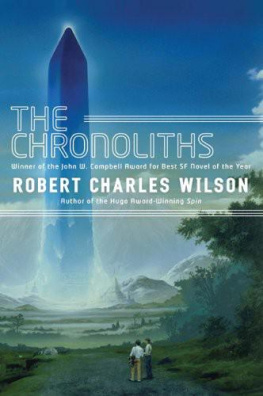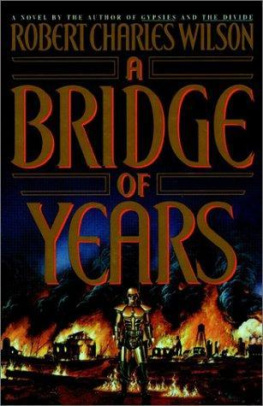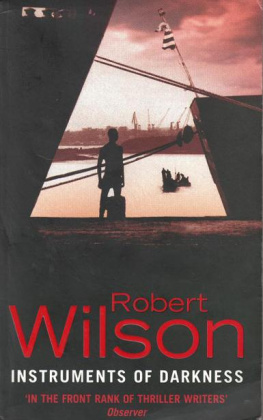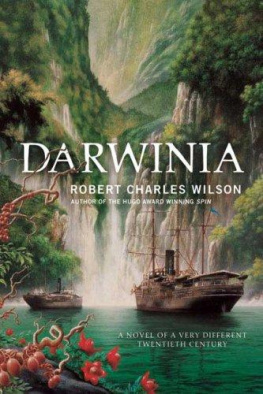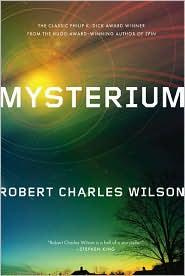Robert Charles Wilson - The Divide
Here you can read online Robert Charles Wilson - The Divide full text of the book (entire story) in english for free. Download pdf and epub, get meaning, cover and reviews about this ebook. year: 1991, publisher: Time Warner Paperbacks, genre: Detective and thriller. Description of the work, (preface) as well as reviews are available. Best literature library LitArk.com created for fans of good reading and offers a wide selection of genres:
Romance novel
Science fiction
Adventure
Detective
Science
History
Home and family
Prose
Art
Politics
Computer
Non-fiction
Religion
Business
Children
Humor
Choose a favorite category and find really read worthwhile books. Enjoy immersion in the world of imagination, feel the emotions of the characters or learn something new for yourself, make an fascinating discovery.
- Book:The Divide
- Author:
- Publisher:Time Warner Paperbacks
- Genre:
- Year:1991
- Rating:3 / 5
- Favourites:Add to favourites
- Your mark:
- 60
- 1
- 2
- 3
- 4
- 5
The Divide: summary, description and annotation
We offer to read an annotation, description, summary or preface (depends on what the author of the book "The Divide" wrote himself). If you haven't found the necessary information about the book — write in the comments, we will try to find it.
The Divide — read online for free the complete book (whole text) full work
Below is the text of the book, divided by pages. System saving the place of the last page read, allows you to conveniently read the book "The Divide" online for free, without having to search again every time where you left off. Put a bookmark, and you can go to the page where you finished reading at any time.
Font size:
Interval:
Bookmark:
The Divide
Genetically designed to be a prototype for the next stage of human evolution, John Shaw faces the flaw in his artificial personality as he begins to devolve into two separate individuals, each facing enemies that threaten the people vital to his/their continued sanity. Combining psychological suspense with political intrigue, the latest novel by the author of Gypsies deftly explores the fragile constructs of human consciousness.
A Novel by
Robert Charles Wilson
by Robert Charles Wilson
PRIVATE EXPERIMENTS
Such an ordinary house. Such an ordinary beginning.
But I want it to be an ordinary house, Susan Christopher thought. An ordinary house with an ordinary man in it. Not this monsterto whom I must deliver a message.
It was a yellow brick boardinghouse in the St. Jamestown area of Toronto, a neighborhood of low-rent high-rises and immigrant housing. Susan was from suburban Los Angeleslately from the University of Chicagoand she felt misplaced here. She stood for a moment in the chill, sunny silence of the afternoon, double-checking the address Dr. Kyriakides had written on a slip of pink memo paper. This number, yes, this street.
She fought a momentary urge to run away.
Then up the walk through a scatter of October leaves, pausing a moment in the cold foyer the inner door stood open finally down a corridor to the door marked with a chipped gilt number 2.
She knocked twice, aware of her small knuckles against the ancient veneer of the door. Across the hall, a wizened East Indian man peered out from behind his chain-lock. Susan looked up at the ceiling, where a swastika had been spray-painted onto the cloudy stucco. She was about to knock again when the door opened under her hand.
But it was a woman who answered a young woman in a white blouse, denim skirt, torn khaki jacket. Her feet were bare on the cracked linoleum. The womans expression was sullenher lips in a ready, belligerent poutand Susan dropped her eyes from the narrow face to the jacket, where there was a small constellation of buttons and badges: BON JOVI, JIM MORRISON, LED ZEPPELIN.
You want something?
Susan guessed this was a French-Canadian accent, nasal and impatient. She forced herself to meet the womans eyes. Woman or girl? Older than she had first seemed: maybe around my age, Susan thought; but it was hard to be sure, with the make-up and all.
She cleared her throat. Im looking for John Shaw.
Oh him.
Is he here?
No. The girl ran a hand through her hair. Long nails. Short hair.
But he lives here?
Uhsometimes. Are you a friend of his?
Susan shook her head. Not exactly are you?
Now there was the barest hint of a smile. Not exactly. The girl extended her hand. Im Amelie
The hand was small and cool. Susan introduced herself; Amelie said, Hes not here but you can maybe find him at the 24-Hour on Wellesley. You know, the doughnut shop?
Susan nodded. She would look for Wellesley on her map.
Amelie said, Is it important? You look kind of, ah, worried.
Its pretty important, Susan said, thinking: Life or death. Dr. Kyriakides had told her that.
Susan saw him for the first time, her first real look at him, through the plate-glass window of the doughnut shop.
She allowed herself this moment, seeing him without being seen. She recognized him from the pictures Dr. Kyriakides had shown her. But Susan imagined that she might have guessed who he was, just from looking at himthat she would have known, at least, that he was not entirely normal.
To begin with, he was alone.
He sat at a small table in the long room, three steps down from the sidewalk. His face was angled up at the October sunlight, relishing it. There was a chessboard in front of himthe board built into the lacquered surface of the table and the pieces arranged in ready ranks.
She had dreamed about this, about meeting him, dreams that occasionally bordered on nightmares. In the dreams John Shaw was barely human, his head unnaturally enlarged, his eyes needle-sharp and unblinking. The real John Shaw was nothing like that, of course, in his photographs or here, in the flesh; his monstrosities, she thought, were buriedbut she mustnt think of him that way. He was in trouble and he needed her help.
Hello, John Shaw, she thought.
His hair was cut close, a burr cut, but that was fashionable now; he was meticulously clean-shaven. Regular features, frown lines, maps of character emerging from the geography of his fairly young face. Here is a man, Susan thought, who worries a lot. A gust of wind lifted her hair; she reached up to smooth it back and he must have glimpsed the motion. His head turneda swift owlish flick of the eyesand for that moment he did not seem human; the swivel of his head was too calculated, the focus of his eyes too fine. His eyes, suddenly, were like the eyes in her dreams.
John Shaw regarded her through the window and she felt spotlit, or, worse, pinned a butterfly in a specimen case.
Both of them were motionless in this tableau until, finally, John Shaw raised a hand and beckoned her inside.
Well, Susan Christopher thought, theres no turning back now, is there?
Breathing hard, she moved down the three cracked steps and through the door of the shop. There was no one inside but John Shaw and the middle-aged woman refilling the coffee machine. Susan approached him and then stood mute beside the table: she couldnt find the words to begin.
He said, You might as well sit down.
His voice was controlled, unafraid, neutral in accent. Susan took the chair opposite him. They were separated, now, by the ranks of the chessboard.
He said, Do you play?
Oh I didnt come here to play chess.
No. Max sent you.
Her eyes widened at this Holmes-like deduction. John said, Well, obviously you were looking for me. And Ive taken some pains to be unlooked-for. I could imagine the American government wanting a word with me. But you dont look like you work for the government. It wasnt a long shotIm assuming Im correct?
Yes, Susan stammered. Dr. Kyriakides yes.
I thought he might do this. Sometime.
Its more important than you think. But how to say this? He wants you to know
John hushed her. Humor me, he said. Give me a game.
She looked at the board. In high school, she had belonged to the chess club. She had even played in a couple of local tournamentsnot too badly. But
Youll win, she said.
You know that about me?
Dr. Kyriakides said
Your move, John said.
She advanced the white kings pawn two squares, reflexively.
No talk, John instructed her. As a favor. He responded with his own kings pawn. I appreciate it.
She played out the openinga Ruy Lopezbut was soon in a kind of free fall; he did something unexpected with his queens knight and her pawn ranks began to unravel. His queen stood in place, a vast but nonspecific threat; he gave up a bishop to expose her king, and the queen at last came swooping out to give checkmate. They had not even castled.
Of course, the winning was inevitable. She knewDr. Kyriakides had told herthat John Shaw had played tournament chess for a time; that he had never lost a game; that he had dropped out of competition before his record and rating began to attract attention. She wondered how the board must look to him. Simple, she imagined. A graph of possibilities; a kindergarten problem.
He thanked her and began to set up the pieces again, his large hands moving slowly, meticulously. She said, You spend a lot of time here?
Yes.
Font size:
Interval:
Bookmark:
Similar books «The Divide»
Look at similar books to The Divide. We have selected literature similar in name and meaning in the hope of providing readers with more options to find new, interesting, not yet read works.
Discussion, reviews of the book The Divide and just readers' own opinions. Leave your comments, write what you think about the work, its meaning or the main characters. Specify what exactly you liked and what you didn't like, and why you think so.

